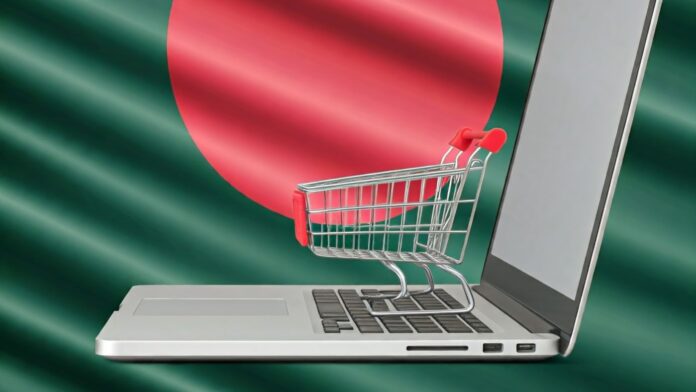Bangladesh, once primarily known for its garment industry, is now emerging as a vibrant hub for e-commerce. This digital revolution has reshaped the country’s retail landscape, offering unprecedented opportunities for businesses and consumers alike.
The Rise of E-commerce in Bangladesh
The seeds of e-commerce in Bangladesh were sown in the early 2000s. However, it wasn’t until the mid-2010s that the industry started to gain significant momentum. Several factors have contributed to this growth:
- Increasing Internet Penetration: The rapid expansion of internet connectivity has made it easier for more people to access the digital world.
- Growing Smartphone Usage: The affordability of smartphones has empowered a significant portion of the population, particularly the younger generation, to shop online.
- Government Support: The government has recognized the potential of e-commerce and has taken steps to create a conducive environment for its growth, including simplifying regulations and improving digital infrastructure.
- Emergence of E-commerce Platforms: A plethora of e-commerce platforms, both domestic and international, have emerged, offering a wide range of products and services.
Key Players and Trends
Several key players have emerged in Bangladesh’s e-commerce landscape:
- Daraz: A leading e-commerce platform, backed by Alibaba Group, Daraz offers a diverse range of products, from electronics to fashion.
- Ajker Deal: Known for its daily deals and flash sales, Ajker Deal has gained popularity among bargain hunters.
- Rokomari: A platform focused on books and other literary products, Rokomari has contributed to the growth of the publishing industry in Bangladesh.
- e-commerce Associations: Organizations like the e-Commerce Association of Bangladesh (e-CAB) play a crucial role in advocating for the industry and promoting best practices.
Some of the prominent trends shaping Bangladesh’s e-commerce industry include:
- Mobile Commerce: The increasing use of smartphones has led to a surge in mobile commerce, with consumers making purchases on-the-go.
- Social Commerce: Social media platforms like Facebook and Instagram have become powerful tools for e-commerce, enabling businesses to reach a wider audience and drive sales.
- Cashless Payments: The adoption of digital payment methods, such as mobile wallets and online banking, has facilitated seamless transactions.
- Cross-border E-commerce: Bangladesh is increasingly participating in cross-border e-commerce, importing and exporting goods through online platforms.
Challenges and Opportunities
While Bangladesh’s e-commerce sector is booming, it still faces several challenges:
- Logistics and Delivery: The country’s logistics infrastructure, particularly in rural areas, needs improvement to ensure timely and efficient delivery of products.
- Payment Gateway Issues: Limited payment options and security concerns can hinder online transactions.
- Trust and Consumer Protection: Building trust with consumers and addressing issues related to product quality and delivery reliability is crucial.
- Cybersecurity Threats: As e-commerce grows, so do the risks of cyberattacks, necessitating robust security measures.
Despite these challenges, the future of e-commerce in Bangladesh looks promising. The industry has the potential to create jobs, boost economic growth, and improve the lives of millions of people. By addressing the existing challenges and capitalizing on emerging opportunities, Bangladesh can solidify its position as a regional e-commerce powerhouse.
The Road Ahead
To further accelerate the growth of e-commerce in Bangladesh, several key steps can be taken:
- Digital Literacy: Promoting digital literacy among the population, especially in rural areas, will empower more people to participate in the digital economy.
- Infrastructure Development: Investing in robust digital infrastructure, including high-speed internet connectivity, will facilitate seamless online transactions.
- Policy Reforms: Implementing favorable policies and regulations can create a conducive environment for e-commerce businesses to thrive.
- Collaboration and Partnerships: Fostering collaboration between government, businesses, and technology providers can drive innovation and accelerate growth.
By embracing technology and innovation, Bangladesh can unlock the full potential of e-commerce and transform its economy.


